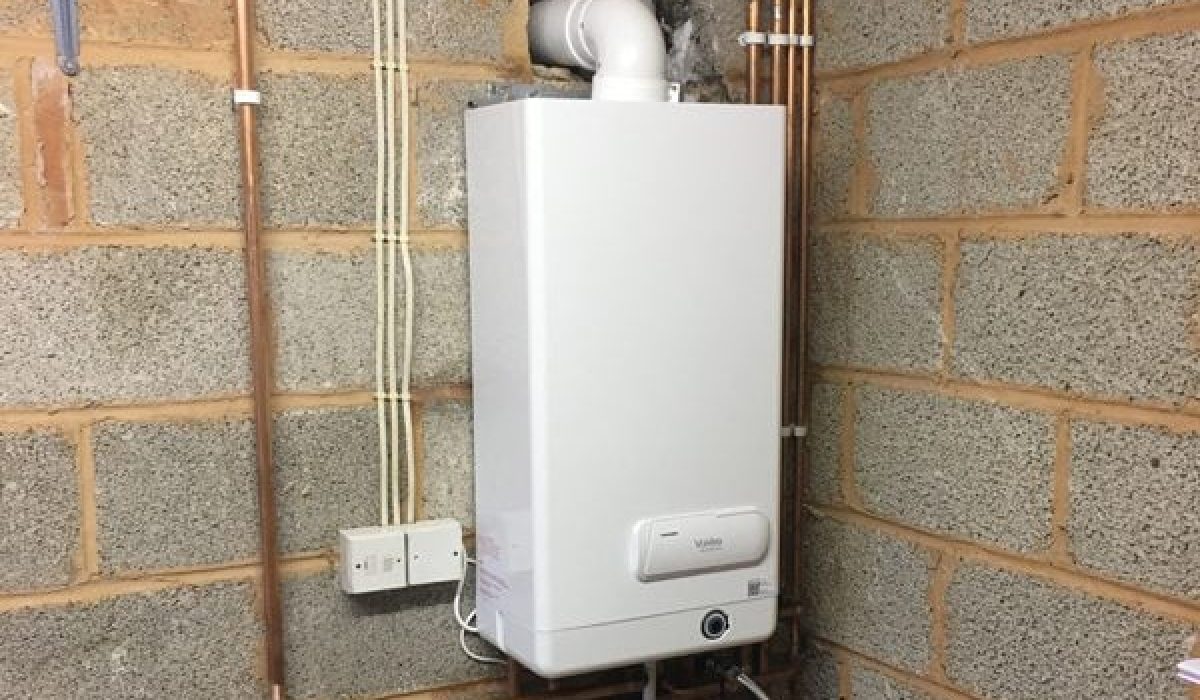Conventional Boiler vs Combination Boiler: Pros And Cons
When looking at the differences between a Combination Boiler vs Conventional Boiler, it’s important to bear in mind your requirements, and also the suitability for your home.
Not all homes are the same, and family sizes differ, so the demands specific to each home will determine your needs for a Boiler system.
Below, we outline the main differences between the two, and the pros and cons associated with each.
=====
Conventional Boilers (open vent)
Conventional Boilers are great for larger houses which have multiple bathrooms.
These boilers feature both a cold water tank, a feed and expansion tank, AND a hot water cylinder.
Both tanks are stored in the loft, with the cylinder being stored in the house below (the cold water needs gravity to reach the cylinder).
As the water is cold when it’s fed into the cylinder, it does mean you have to wait for the water to heat.
—
Pros
Larger houses
A home that has two or more bathrooms has a higher demand for hot water. Conventional boilers store the hot water until it runs out. If two hot taps are on at the same time, you’ll find no change to the water pressure.
—
Cons
Replacing the boiler
Unless you’re replacing your boiler with another Conventional Boiler, it’s usually necessary to replace the whole heating system and its components. This includes pipework, radiators, and the boiler itself.
Space
Due to their size (two tanks plus one cylinder), a lot of space is needed.
Hot water
With the hot water being stored, once it runs out it takes time to reheat.
Cylinder insulation
The cylinder needs to be insulated and if this isn’t done well, the stored hot water will lose its heat.
=====
Combination Boilers (combi)
These boilers are both a water heater AND a central heating boiler contained in one system.
They don’t have a tank or cylinder and can be either gas or electric.
As you have access to unlimited hot water, Combi Boilers are the most popular type of boiler.
—
Pros
Efficient
Combi Boilers must have an efficiency rating of 92%, therefore, changing from a Conventional Boiler to a Combination Boiler will generally reduce your utility bill.
Affordability
As everything is stored in one unit, they are cheaper to run due to the hot water not constantly being heated. They’re also quicker and easier to install.
Speed
Hot water is unlimited and instant due to them always being on standby.
Size
Combi Boilers are the ideal fit for any kind of home as they’re small enough to fit inside a cupboard.
Cleaner water
As there’s no tank, the water runs directly from the mains eliminating the risk of “sludge”, consequently resulting in safer water.
Pressure
Running the water straight from the mains means the water pressure rarely drops.
—
Cons
No tank
No water tank means no hot water storage. If the boiler breaks, there’ll be no hot water until it is fixed.
Multiple Taps
As there is only one unit, running hot water from multiple taps will affect the water pressure. This also means if your house has more than one bathroom, you won’t be able to simultaneously run the bath or shower.
Water pressure
If the water pressure in your area is naturally weak, a pump will help increase this.
Upgrades
To replace a Conventional Boiler with a Combi Boiler will cost you time and money as the whole heating system is likely to need replacing.
=====
System Boiler
Aside from the two more popular options, there is also a third option; a System Boiler.
Typically, these are a cross between a Combi Boiler and a Conventional Boiler with the water feeding from the mains into a hot water cylinder.
—
Pros
Water pressure
As the water is fed straight from the mains, the water pressure is high.
High demands
The presence of a hot water cylinder means the hot water meets the demands of a larger home.
—
Cons
Space
System Boilers require more space as they are larger than Combi Boilers.
Cylinder size
The space available depends on the size of the cylinder you’ve installed. This consequently affects how much hot water is available.
=====
If you need further help and advice regarding your Boiler, or simply want to enquire about updating yours, contact us to chat to one of our highly skilled engineers.
